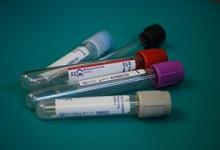2018 Predictions for Rheumatology Save

MedPage Today Editors surveyed a few rheumatologists for their major news predictions in 2018.
Price
The price of drugs will go under the microscope in 2018, including generics and high-priced biologics," said John J. "Jack" Cush, MD, of Baylor University Medical Center in Dallas. He cited a report from Reuters that stated, "Drugmakers opened the new year by raising U.S. prices on dozens of medicines, but early data showed the increases generally remained within a 10% self-imposed limit in response to a backlash from consumers and politicians." The report noted that Amgen has just raised the price of its "blockbuster" rheumatoid arthritis and psoriasis drug etanercept (Enbrel) by 9.7%.
"The biggest issue in rheumatology in 2018 will be the continued marked increases in the price of certain medications," agreed James R. O'Dell, MD, of the University of Nebraska Medical Center in Omaha. He pointed out hydroxychloroquine (Plaquenil) as an example. Since 2014, there were reports of shortages of the drug, and by 2015, rising prices became a concern. On its website, the Lupus Foundation of America stated that "many of our constituents are unable to afford the high cost of the generic form of the drug, hydroxychloroquine," expressing concern that patients will stop taking the drug or miss doses. Lupus expert Michelle Petri, MD, of Johns Hopkins University in Baltimore, was quoted on the foundation's website as saying, "Hydroxychloroquine is the mainstay of lupus therapy. It prevents half of lupus flares, reduces renal and CNS lupus, [cuts] blood clots in half, reduces future seizures, diabetes, and LDL cholesterol, and improves survival."
The average cash price for hydroxychloroquine, according to the GoodRx web site, was $222.16 for 60 tablets in November 2017.
Biosimilars
David Pisetsky, MD, PhD, of Duke University, described the most important issue facing rheumatology in 2018 as "the introduction of biosimilars in the treatment of inflammatory arthritis." As MedPage Today reported 2 weeks ago, the increased variety of new medications to treat rheumatoid arthritis and other rheumatic conditions has not brought costs down; nor has the introduction of biosimilars.
Wholesale prices for two of the most popular tumor necrosis factor inhibitors, adalimumab (Humira) and etanercept, have risen by more than 70% in the last 3 years, even as biosimilars to them have received FDA approval.
The challenges facing the adoption of biosimilars were highlighted in a "great debate" held at the annual meeting of the American College of Rheumatology in November, where speaker Roy Fleischmann, MD, of the University of Texas Southwestern Medical Center in Dallas, argued that currently, biosimilars simply do not lower drug costs to patients or society.
Moreover, the biosimilars that have been approved are largely tied up in the courts because of patent concerns. An approved biosimilar to adalimumab, Amjevita, won't be available to patients until 2023 following a deal between its manufacturer and AbbVie, the owner of originator Humira, to settle potential patent litigation.
Autoimmunity and Checkpoint Inhibitors
Leonard H. Calabrese, DO, of the Cleveland Clinic told MedPage Today that "the new and emerging field of rheumatic immune-related adverse events from cancer immunotherapy will only increase in scope and complexity. There are strong educational needs now in rheumatology for us to learn about this new and challenging field."
In an editorial published this week in Annals of Internal Medicine, Calabrese noted that the use of checkpoint inhibitors for cancer has rapidly expanded. "Immunologic checkpoints are brakes on an activated immune system; checkpoint inhibitors remove or diminish these brakes and reinvigorate an exhausted immune response," he explained. The result can be a wide array of autoimmune and autoinflammatory complications, including arthritis, psoriasis, myositis, and inflammatory bowel disease.
The clinical trials of the checkpoint inhibitors excluded patients with immune-mediated inflammatory disorders, and consequently, many questions remain for patients with these diseases who may also be candidates for checkpoint inhibitor treatment, such as whether they might be at risk for a flare of the autoimmune disease, and how this should be managed. Also, it's unclear whether treatment of the autoimmune disorder with immunosuppressants affects the tumor response.
"Given these unanswered questions and the complexity of the problems, perhaps our best strategy for now is to expect that the surprises of immune-related adverse events from current checkpoint inhibitors will merely prepare us for future surprises," he concluded.
Thrombotic Events and JAK Inhibition
Mark Genovese, MD, of Stanford University in Palo Alto, suggested that venous thrombotic events relating to JAK inhibition could be a major concern this year.
There have been reports indicating that patients with RA and other autoimmune/inflammatory diseases are at increased risk of venous thromboembolism (VTE), and the FDA rejected the application for approval of baricitinib earlier this year, referring to an "imbalance in thromboembolic events," according to Cush.
Cush noted that a search of the FDA's Adverse Event Reporting System found multiple events for tofacitinib (Xeljanz), including 18 cases of pulmonary thrombosis and 36 cases of pulmonary embolism, with four deaths. There also were 18 cases of deep vein thrombosis, with three deaths.
"The risk of VTE with rheumatoid arthritis and like disorders remains a rare and possible association," Cush wrote in RheumNow. "Whether this risk is augmented by JAK inhibitors remains to be seen. Hopefully the FDA will further analyze and clarify this issue for all JAK inhibitors," he concluded.









If you are a health practitioner, you may Login/Register to comment.
Due to the nature of these comment forums, only health practitioners are allowed to comment at this time.